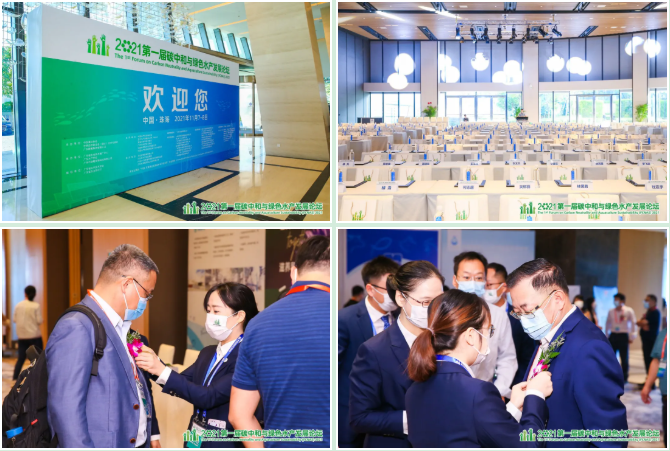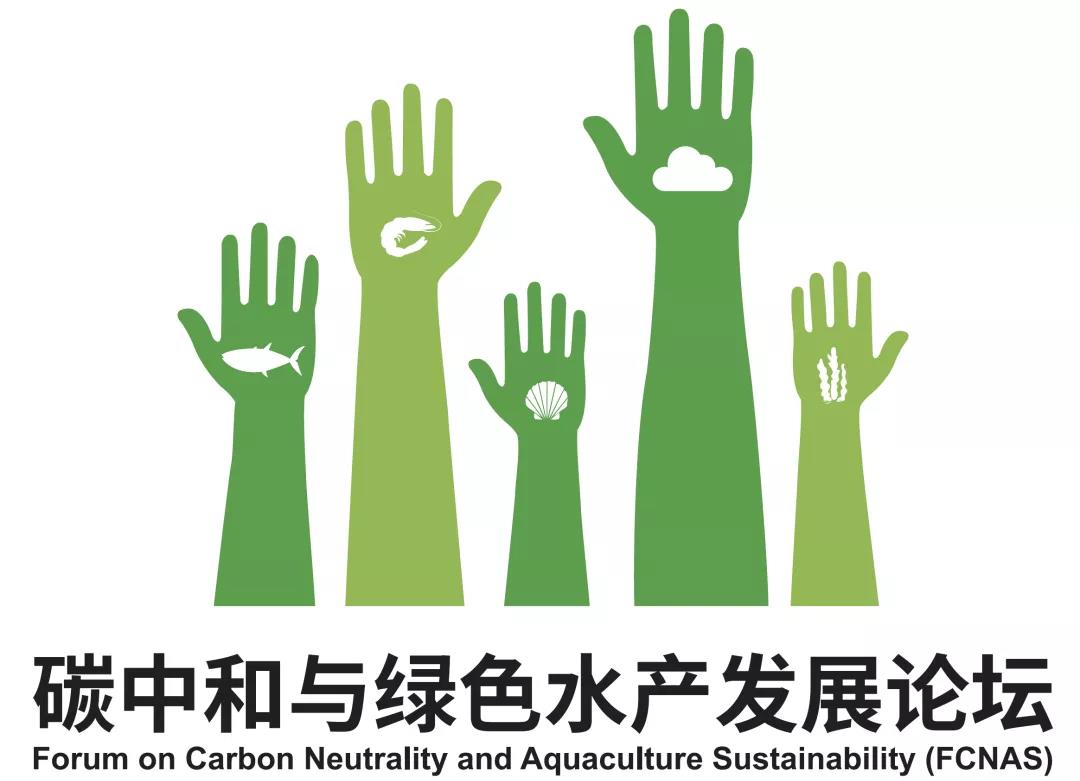The world's 1st "Forum on Carbon Neutrality and Aquaculture Sustainability (FCNAS) 2021" was successfully held in Zhuhai, China
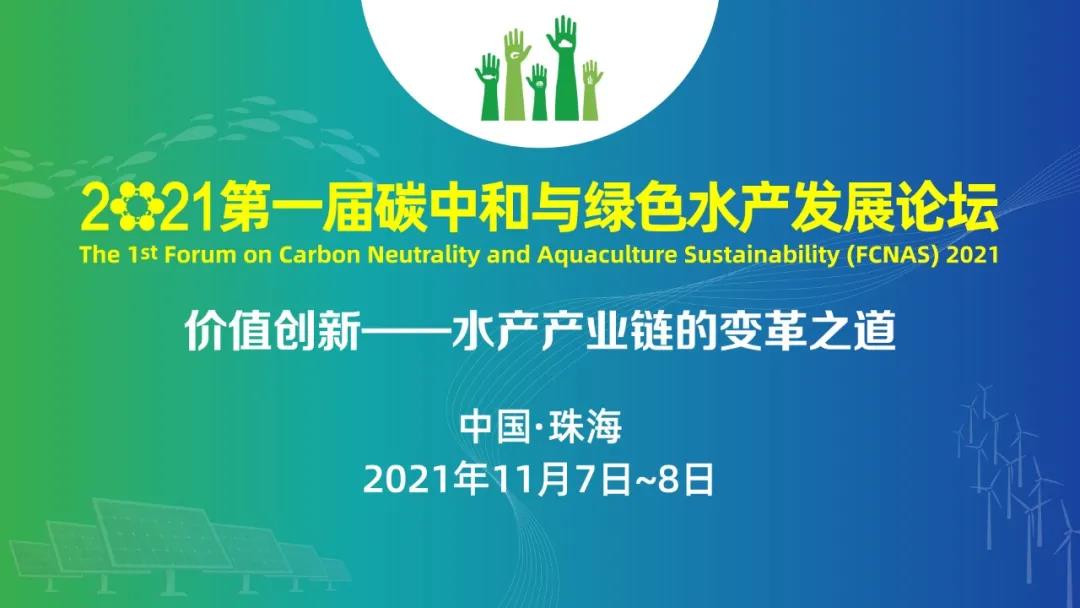
On November 7-8, 2021, the world's 1st "Forum on Carbon Neutrality and Aquaculture Sustainability (FCNAS) 2021" was successfully held in Zhuhai, Guangdong, which was jointly organized by China Fisheries Association, World Wide Fund for Nature (Switzerland) Beijing Representative Office, and Nutriera Group.
This forum is based on China's new "dual-carbon" target, with the theme of "Value Innovation: Towards an Optimized Industrial Value Chain for Aquaculture ". A total of more than 600 people from industry authorities, scientific research institutions, international organizations, fishery-related companies, and finance, environmental protection, law, energy and other fields were invited to attend this grand event. In addition, more than 200,000 people participated in the conference through online live streaming.



The forum is guided by Guangdong Provincial Association of Science and Technology and Department of Agriculture and Rural Areas of Guangdong Province, supported by Chinese Academy of Fishery Sciences, Network of Aquaculture Centers in Asia-Pacific (NACA), Guangzhou Association of Science and Technology, Institute of Hydrobiology, Chinese Academy of Sciences, and Pearl River Fisheries Research Institute, Chinese Academy of Fishery Sciences, jointly organized by China Fisheries Association, World Wide Fund for Nature (Switzerland) Beijing Representative Office and Nutriera Group, co-organized by Famsun Co., Ltd, Da Bei Nong Aquaculture Technology Group, Phileo-Lesaffre Animal Care and Jiangsu Long-life Group Nanshan Feed Co. Ltd.
The forum is funded by China-ASEAN Fisheries Resources Conservation and Exploitation.
Many famous media units including Fisheries Advance Magazine, Fresh Pioneer, Tensfish, China Fisheries, China Feed, Ocean Fishery, Water Biology and Security, Aqua Culture Asia Pacific, International AquaFeed, Aquafeed.com have broadcasted this event.
The forum also received attention from media platforms such as Sansha Satellite TV, Nanfang.com, Learning Power, Sina.com, Sohu.com, and NetEase. Aquatic Frontier provides online live broadcast support for the conference.

Mr. Qingying Gao, Deputy Director-General of Department of Agriculture and Rural Areas of Guangdong Province
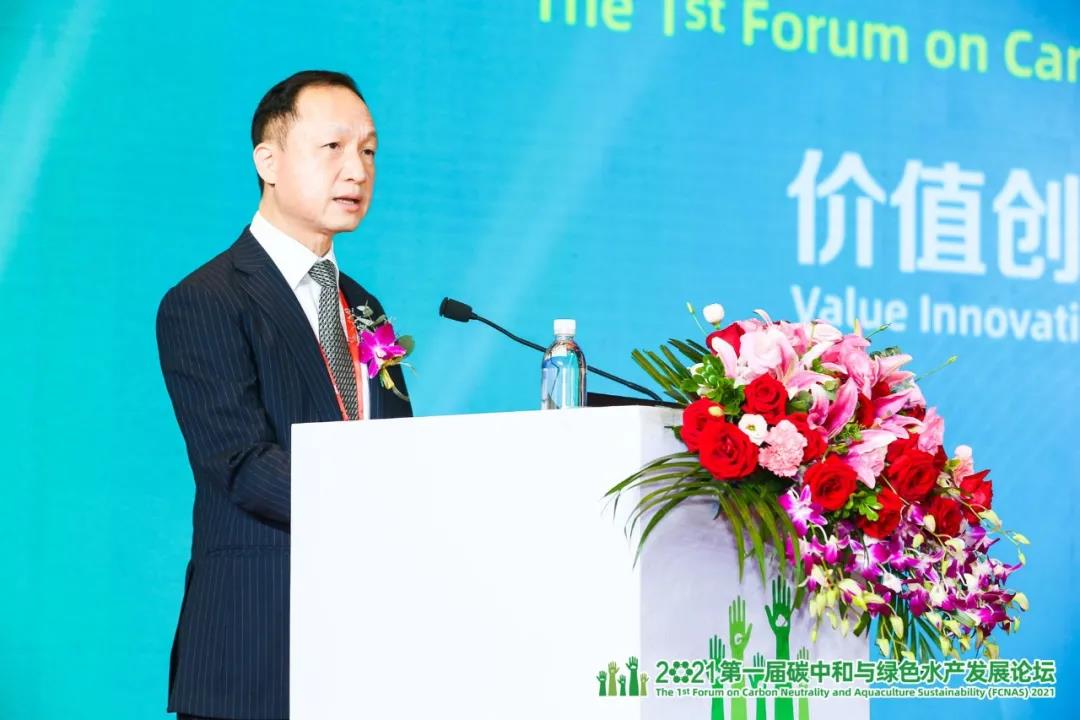
Mr. Zhijian Huang, Vice Chairman of China Fisheries Association
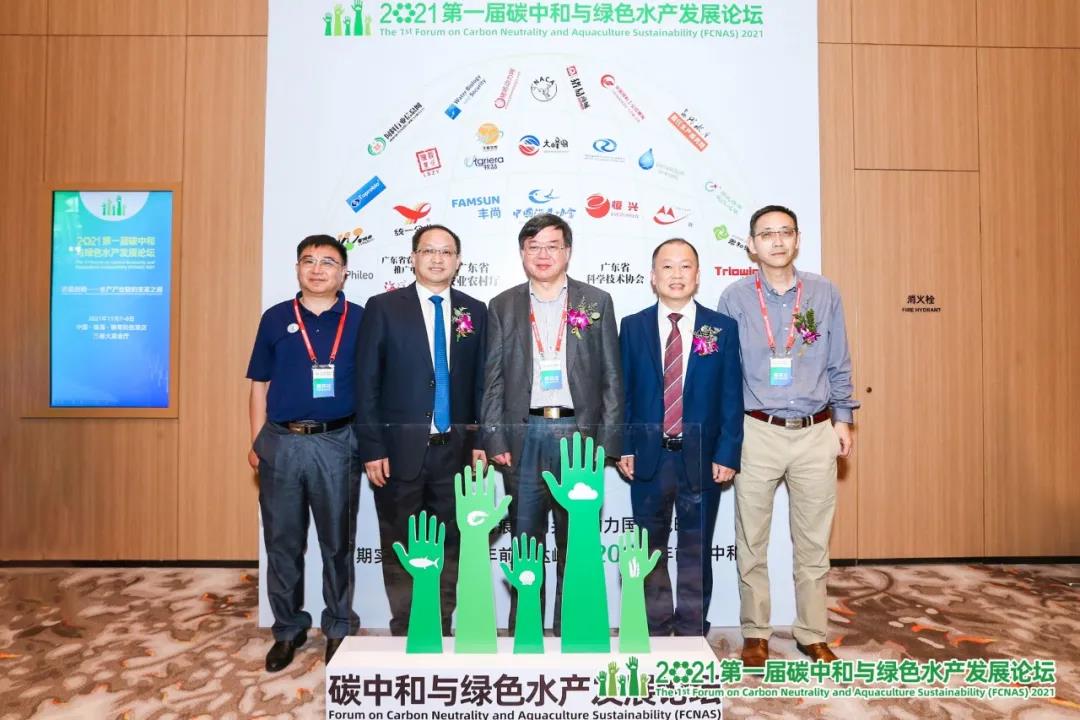
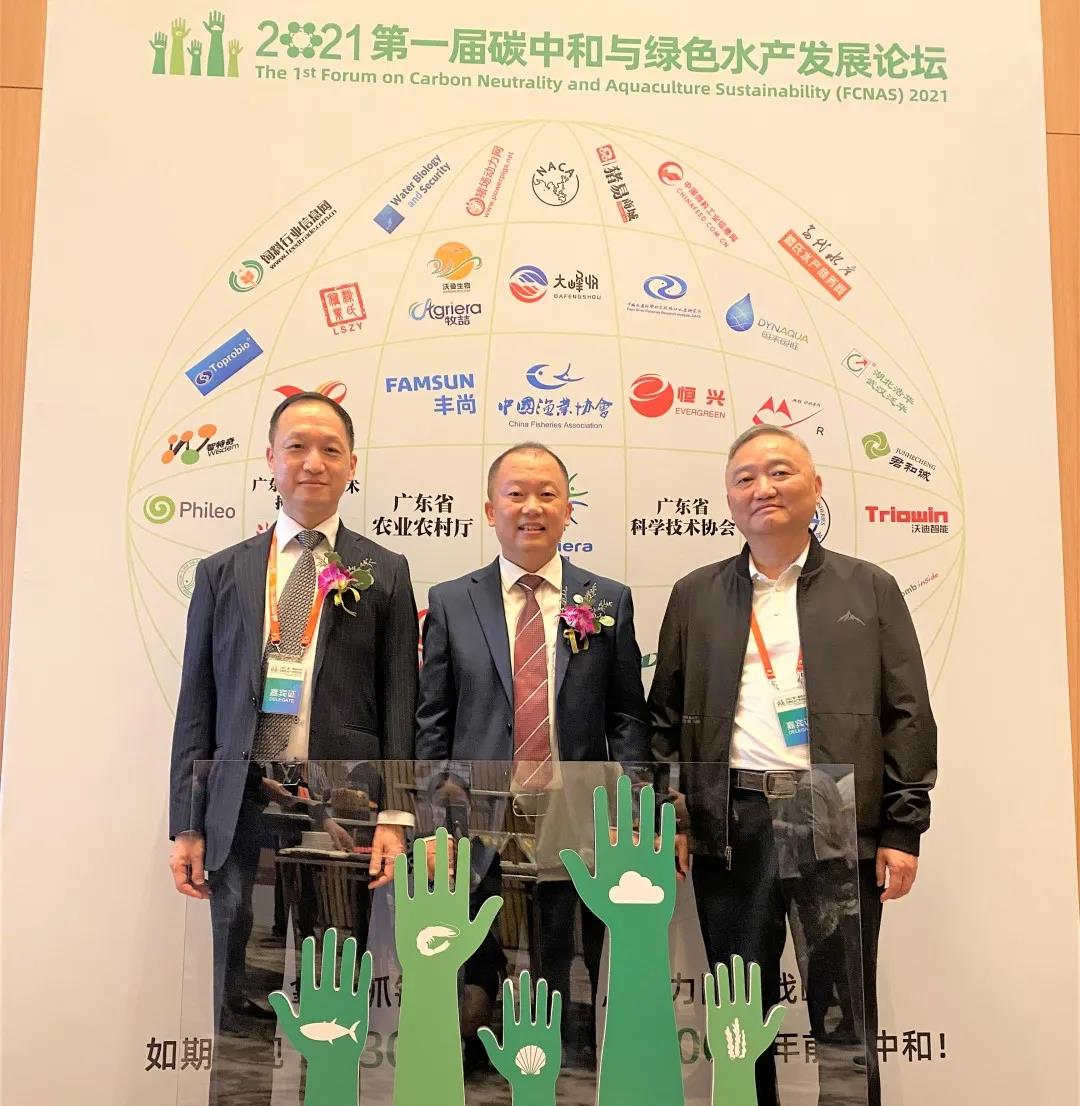

Conference content:
Part 1. The path exploration on achieving low carbon & green development in aquatic industry under the background of carbon neutrality
In the forum, the famous biological oceanographer, Academician Prof. Nianzhi Jiao from Xiamen University, pointed out that carbon emission reduction and carbon sink increment (negative emission/initiative carbon sink) are main methods to achieve carbon neutrality, carbon sink increment is also a carbon emission without production cutting. He suggested to research and develop the comprehensive carbon storage ecology project with inorganic, organic, living and non-living matters, which was driven by microorganism. He also proposed to implement land and sea plans as a whole, to achieve carbon emission reduction & carbon sink increment, and to quantize eco-compensation policy, these will promote a major domestic circulation. At last, he said to implement an international scientific plan on Marine carbon emission reduction, and establish international standard system, as well as put forward China’s proposals, we may contribute to global governance on this issue.

Academician Prof. Nianzhi Jiao, Xiamen University
The famous ichthyologist, Academician Prof. Jianfang Gui from Institute of Hydrobiology, Chinese Academy of sciences, said that technological innovation and sustainable development bridge the path to a much cleaner aquaculture paradigm. Some functions, for example, pond reconstruction led by informatization and digitization, utilizing aquatic organisms to purify and treat waste water, as well as some recirculating aquaculture ponds (large area water purification fishery mode with the theme of “Water treatment through fishery”, eco-agriculture system “Rice yield promotion through fishery” have been excellent demonstrations everywhere.
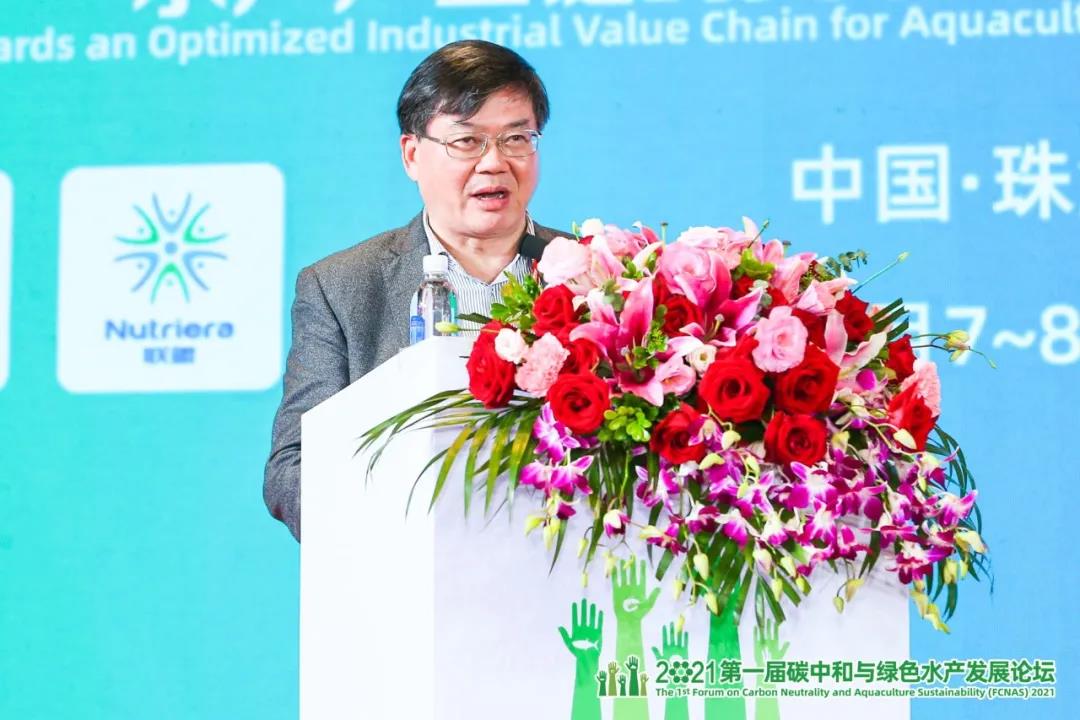
Academician Prof. Jianfang Gui, Institute of Hydrobiology, Chinese Academy of sciences
Vice President Prof. Yingjie Liu from Chinese Academy of Fishery Sciences, proposed that the key point to implement “carbon neutrality” strategy is to promote sustainable development of aquaculture in China. However, sustainable development still faces certain difficulties, the realistic understanding of “Dual Carbon” is to implement optimization and upgradation on aquatic industrial structure, to upgrade aquatic product processing and logistics system on the market end, to propose encouragement and guidance policies on energy conservation, emission reduction and carbon drop, all these measures can minimize carbon footprint and fulfil sustainable development on aquatic industry.

Vice President Prof. Yingjie Liu, Chinese Academy of Fishery Sciences
Expert consultant on ocean projects Mr. Songying Yang from World Wide Fund for Nature (Switzerland) Beijing Representative Office, suggested to launch comprehensive pilot assessment for developing phased targets and action maps on China’s total catch quota management. Moreover, we need to increase investment to improve the system construction on the monitoring and statistics of fishery catch, which will enhance the data base of China’s total catch quota management.

Expert consultant on ocean projects Mr. Songying Yang, World Wide Fund for Nature (Switzerland) Beijing Representative Office
As the main organizer of this conference, Dr. Yang Yong, president of Nutriera Group, elaborated on his thoughts and plans on the theme of this forum in his report. He pointed out that the major international political and economic events that have occurred frequently in recent years (including the Sino-US trade war, the Covid-19 epidemic, African swine fever, carbon neutrality) are profoundly affecting the animal protein supply pattern in China and the world. As much as 80% of the animal protein in the Chinese market comes from terrestrial animals (including pigs, poultry, cattle, sheep and eggs), and there are various hidden dangers in the new international context.
Breeding hog and poultry rely on imports, the development of livestock breeding in China is restricted. China imports 20 million tons of corn and 100 million tons of soybeans as feed ingredients, which brings a huge food crisis. The full-scale outbreak of African swine fever brings huge disease risks and losses, the production of terrestrial animal protein brings high carbon emissions, and the excessive dependence on livestock and poultry protein also limits the health and development of the people.
Appropriately controlling the expansion of livestock and poultry and increasing the supply of aquatic products can just overcome the above-mentioned shortcomings. It is the most economical and convenient new plan for the fishery and animal husbandry industry to implement the carbon neutral national strategy under the background of carbon neutrality.
Specific to the operational level, it should focus on feed and actively explore the development and selection of low-carbon production raw materials in feed formulations. Subversively change feed processing and formulation idea, and actively explore production methods and formulation structure that meet low energy consumption. And vigorously reduce carbon emissions in the most critical production links. In the farming process, vigorously promote the integrated green and healthy farming program of nutrition and farm-care. Focus on how to improve feed utilization and reduce manure emissions. At the same time, it is necessary to actively explore the reuse and recycling of manure in water bodies to improve the ecological benefits of ponds and reduce tail water discharge. He pointed out that in the context of global attention to carbon neutrality, the aquaculture industry is ushering in a historical opportunity of a lifetime. China accounts for 70% of the world's total aquatic products, and it will definitely show China's responsibility in environmental protection to the world.

Dr. Yong Yang, Nutriera Group
Part 2. Opportunities and challenges that carbon neutrality brought to aquatic industry
1. Feed and technological innovation
Low carbon life affects people’s consumption choices. Aquaculture as a low carbon emission industry, no bait rearing is an important model to remove nutrients. So, increasing artificial fish culture and reducing marine fishing will make great contribution to carbon sink increment. But how to increase the carbon sink in aquatic industry?
Prof. Shouqi Xie from Institute of Hydrobiology, Chinese Academy of sciences, believes that the first thing is the selection of fish species, to strengthen the selection and breeding on new low carbon emission species, as well as rearing short food chain fishes can accelerate carbon sink. The second thing is the enhancement of precise management in rearing progress, we need to implement accurate informatization management on carbon footprint in the whole progress. The third thing is the chosen of sustainable and renewable feed raw materials, which can increase the utilization of raw materials.
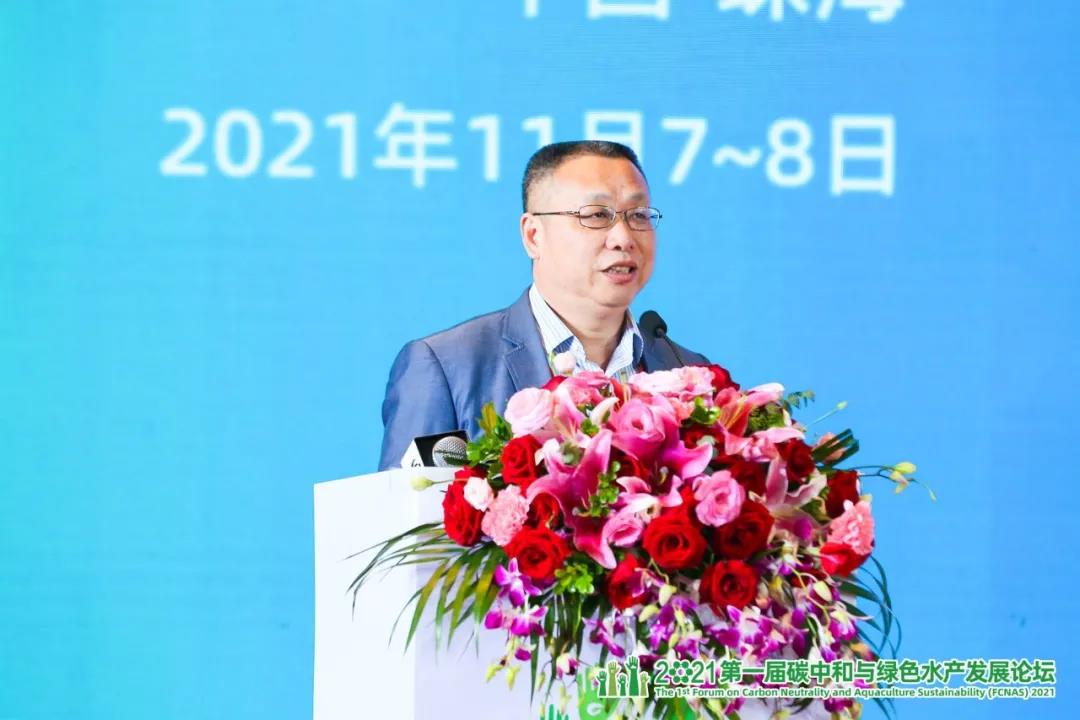
Prof. Shouqi Xie, Institute of Hydrobiology, Chinese Academy of sciences
Mr. Ping Hong, President of Anyou Biotechnology Group Co., Ltd, who has rich experience in livestock industry and has delved into carbon reduction in livestock for many years. He shared some opinions on “carbon neutrality in aquaculture” from the perspective of “carbon reduction in livestock”. In aquaculture, we can fulfil carbon reduction through conducting precise nutrition management, utilizing novel raw materials (such as single cell proteins and microalgae etc.), adopting anti-disease formulation and green feed, implementing energy conservation and carbon reduction policies in feed processing, enhancing efficient feeding management, as well as applying energy saving or intelligent facilities in fish rearing management.
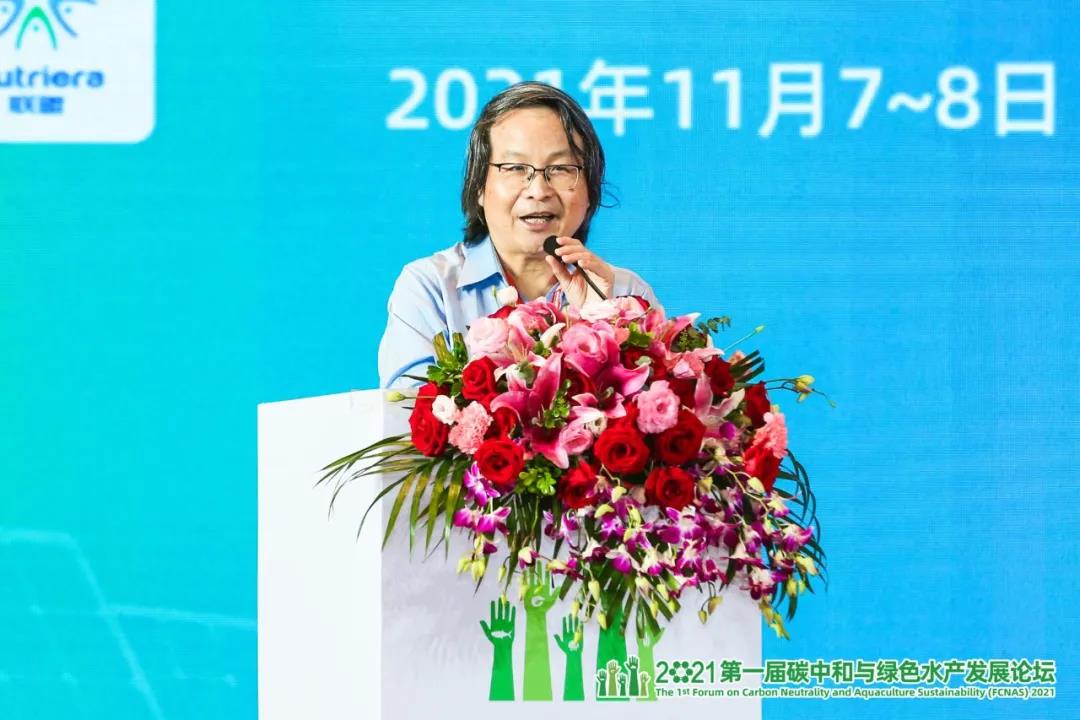
Mr. Ping Hong, President of Anyou Biotechnology Group Co., Ltd
Dr. Fengde Ma, Vice president of Research Institute of Famsun Co., Ltd, said that lean production and intelligent manufacturing as an important guiding ideology in the process of carbon neutrality, will greatly promote value revaluation and technological innovation, and then promote the feed processing industry and even the whole aquatic industry chain from resource dependence to technology dependence.
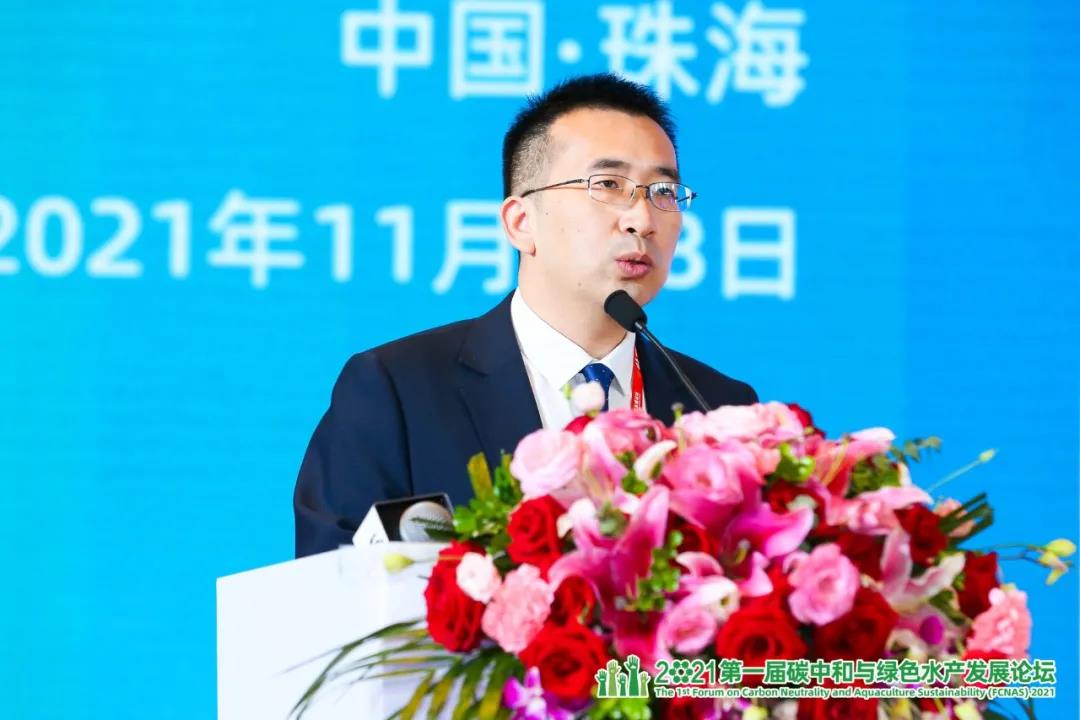
Dr. Fengde Ma, Vice president of Research Institute of Famsun Co., Ltd
Dr. Minyi Feng, Technical Director of Cargill China Region, also said that by 2030, Cargill will help salmon farmers reduce their carbon footprint by 30% compared to 2017, which is equivalent to helping the salmon industry to reduce CO2 by 2 billion kilograms, which is the same as removing 400,000 cars from the road every year.
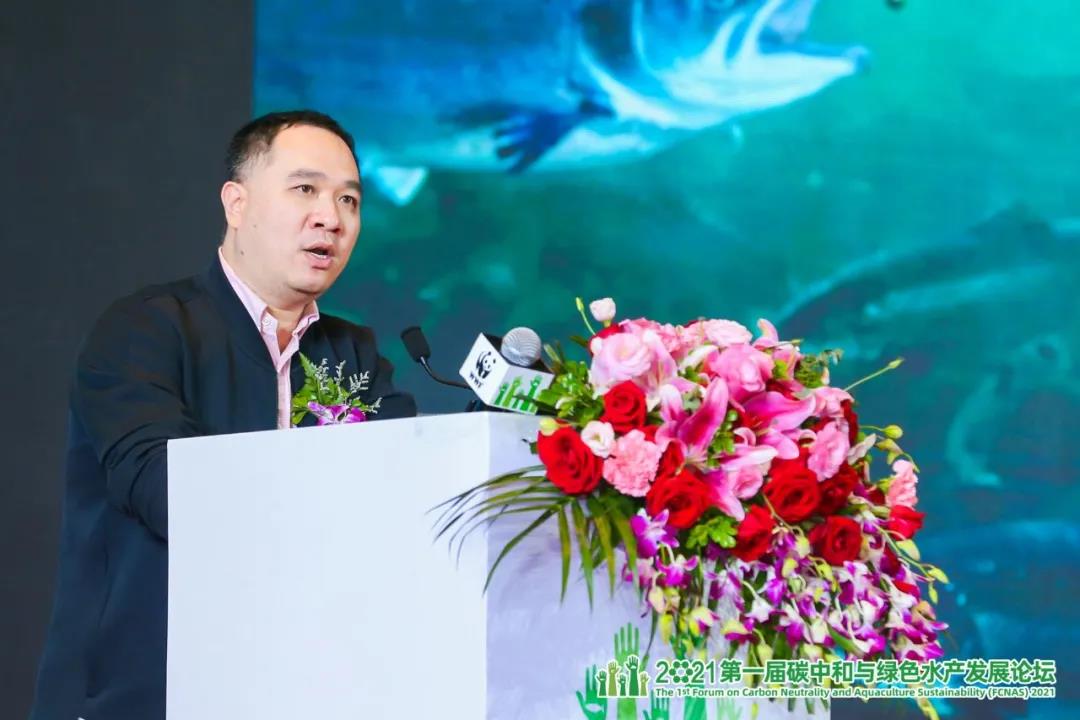
Dr. Minyi Feng, Technical Director of Cargill China Region
2. Aquaculture: Healthy and efficient
Under the background of ecological progress, the contradiction between aquatic tail water discharge and water environment management become more and more prominent. Therefore, we need to adapt to local conditions to explore low-carbon emission reduction technologies, which will become the only way to develop aquaculture industry.
Prof. Jun Xie, Researcher, Pearl River Fisheries Research Institute, Chinese Academy of Fishery Sciences, expounded the relationship between tail water emission control and carbon neutrality, proposed that filter-feeding fish could play a role of carbon sink in tail water emission reduction process, and pointed out the prospect of complementary fishing and light, coupled fisheries and agriculture carbon neutrality model of tail water emission reduction.
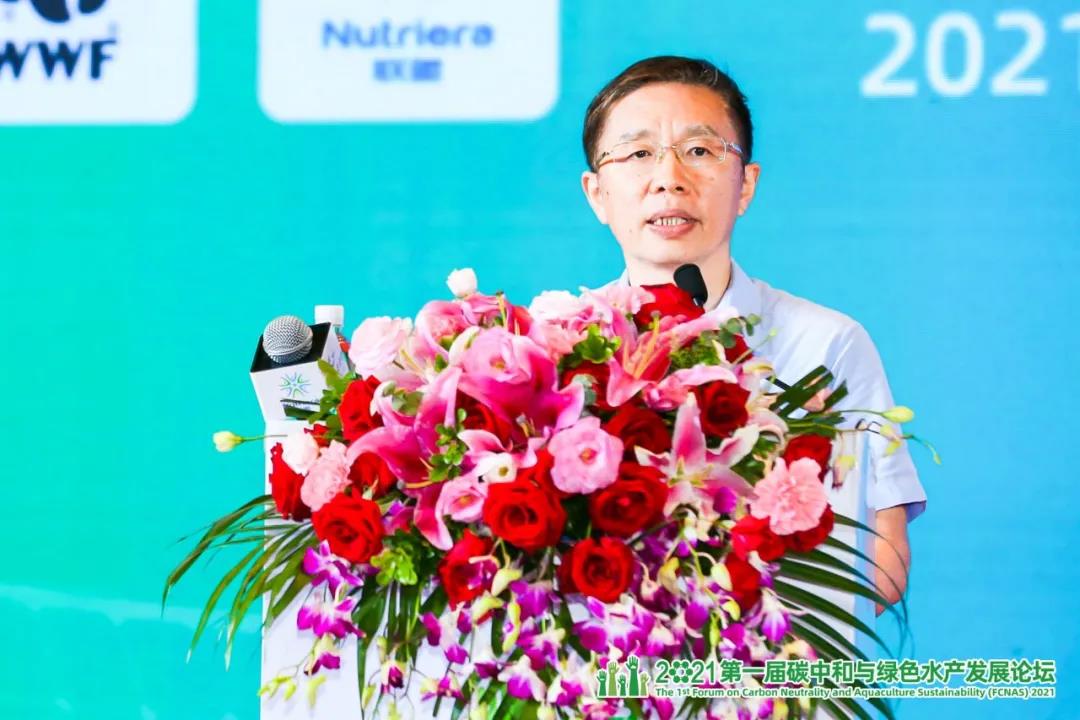
Prof. Jun Xie, Researcher, Pearl River Fisheries Research Institute, Chinese Academy of Fishery Sciences
Prof. Yishan Lu from Guangdong Ocean University, said the concept of disease prevention should be fully integrated into seedling, feed, environment and management. The era without antibiotics will promote the green development of farm care products, which should pay more attention to energy conservation, emission reduction and low-carbon environmental protection from research and development to production and circulation.

Prof. Yishan Lu, Guangdong Ocean University
Prof. Qiang Hu from institute of Advanced Studies, Shenzhen University, emphasized in his report that algae biotechnology has great opportunities in aquatic animal nutrition, aquatic wastewater treatment and resource utilization, and will contribute to the green development of aquaculture.
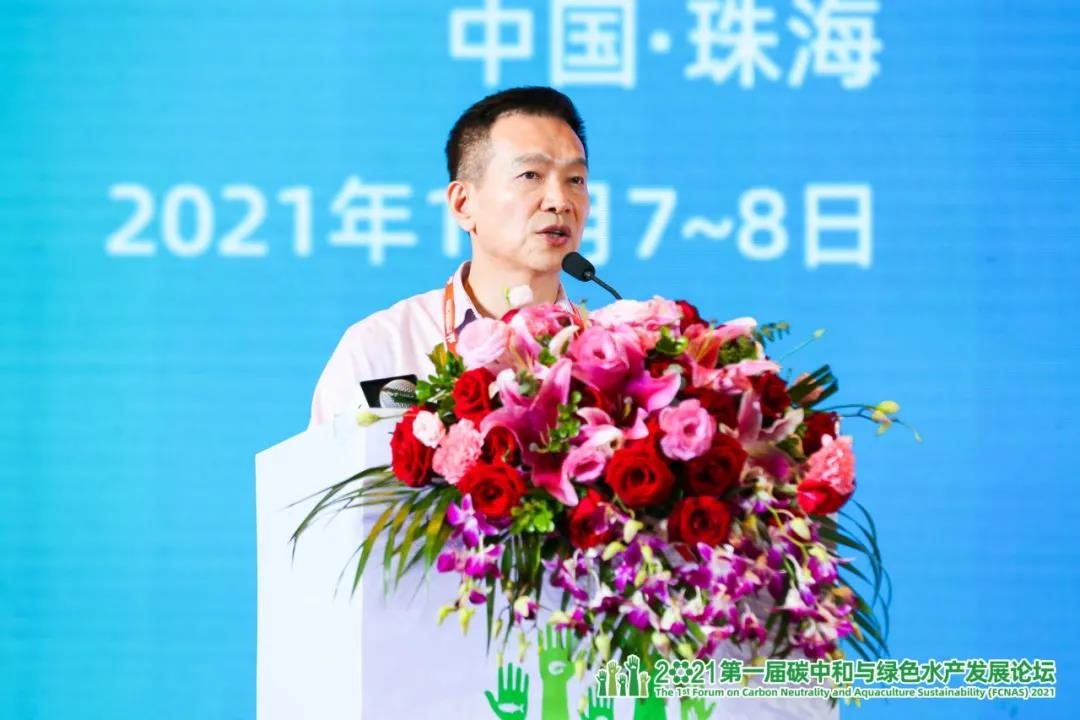
Prof. Qiang Hu, institute of Advanced Studies, Shenzhen University
Dr. Song Zhang, Vice President of Nutriera Group said that it is difficult to improve the benefit of aquatic feed depending on the formula technology. Driven by the continuous pressure to reduce cost and increase efficiency, the re-digestion and recycling of unabsorbed feed components (feces and excreta) in water will play a great potential. At present, nutrition and farm care products are relatively disconnected and separated, so that the treatment effect of fish excrement is not ideal, and there are certain limitations. In 2019, Nutriera Group for the first time put forward the concept of healthy aquaculture of "nutrition and farm care" in the aquatic industry. After in-depth research and development and application practice, it concluded the effective implementation plan of "one fish, one feed, one farm care product", which will lead the rapid transformation of the industry under the historical background of carbon neutrality.
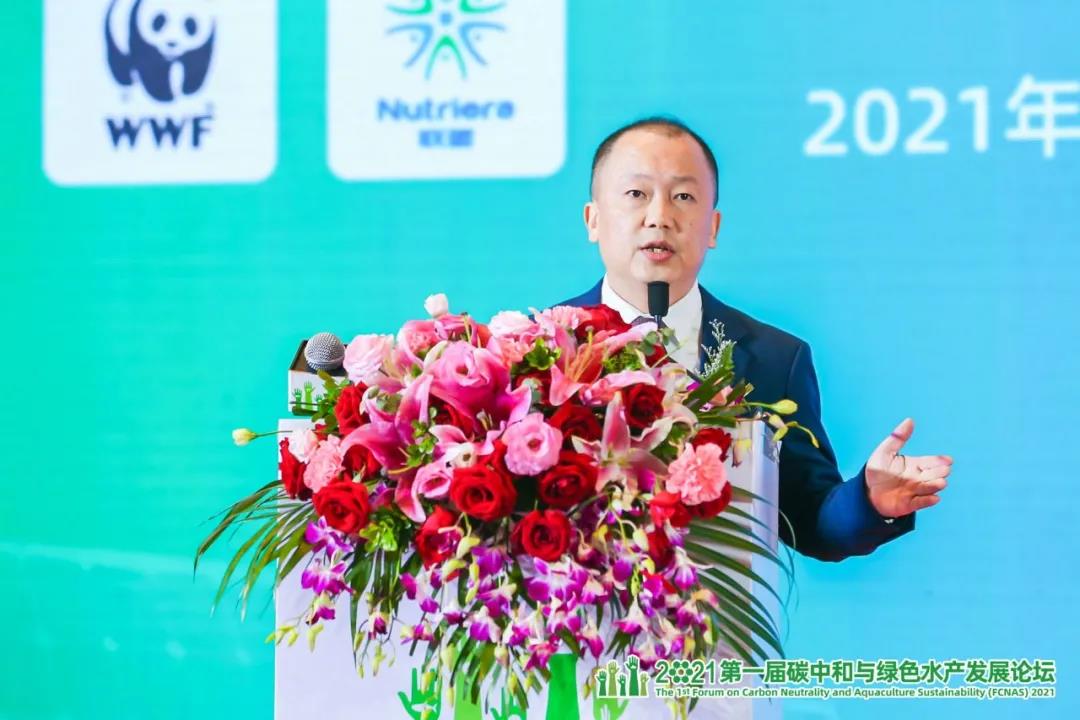
Dr. Song Zhang, Vice president of Nutriera Group
Mr. Ping Gu, Chairman of Jiangsu Long-life Group Nanshan Feed Co. Ltd, summed up and promoted the healthy and efficient breeding mode, using internal and external means to build water ecosystem, that is, bacteria inhibit bacteria, and then bacteria promote the conversion of nitrogen, so that water can be enriched, and finally conducive to the growth of fish. Bacteria, algae and fish can coexist harmoniously. In addition, reasonable breeding of mixed fish can make full use of the upper, middle and lower space, achieve high yield but less disease, promote the green and healthy development of modern fisheries. Therefore, farmers need to be fully cost-conscious and deeply aware that health is at the heart of aquaculture.

Mr. Ping Gu, Chairman of Jiangsu Long-life Group Nanshan Feed Co. Ltd
3. Food and Nutrition safety
The report by Prof. Chaogang Chen, Director of the Department of Clinical Nutrition at Sun Yat Sen Memorial Hospital, Sun Yat-sen University, points out that aquatic products are essential food, which provide most of the nutrients necessary for human body. Their nutritional benefits are reflected in providing more precious multiple trace elements, high-quality protein, high-quality fat, etc., which are helpful for eugenics and growth, anti-cancer, preventing modern people's "three highs" and other “rich man's disease”, and reducing stroke. It is recommended to eat seafood once a day in daily life.
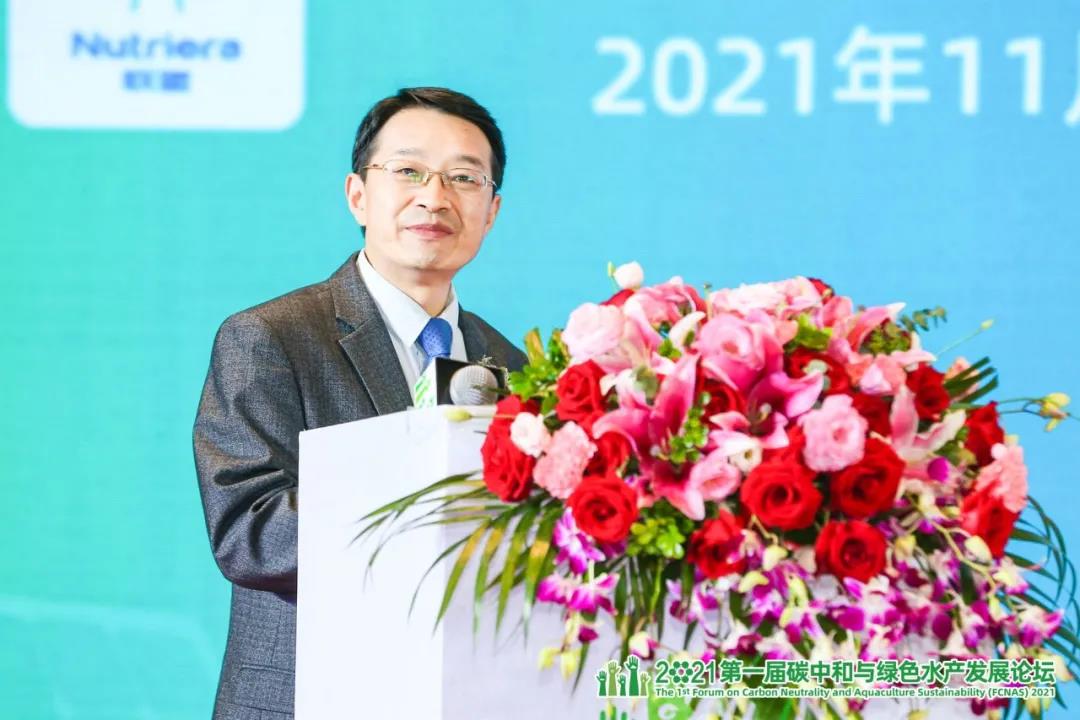
Prof. Chaogang Chen, Director of the Department of Clinical Nutrition at Sun Yat Sen Memorial Hospital, Sun Yat-sen University
Mr. Dan Chen, Chairman of Guangdong EverGreen Group Co Ltd, talked about the opportunities and challenges of aquatic food in the context of carbon neutrality. He predicted that aquatic food will be the main substitute for beef and mutton, and that with the younger consumption and diversification of product forms and sales channels, people will pay more attention to safety, nutrition, health and taste, and the proportion of aquatic products will gradually increase.

Mr. Dan Chen, Chairman of Guangdong EverGreen Group Co Ltd
As a fresh food e-commerce retail giant, Alibaba-Hema fresh seafood and aquatic products procurement & marketing expert Ms. Liuying Liu pointed out that based on the in-depth analysis of the aquatic product retail consumption data on the Alibaba platform, it can fully understand the consumption tendency and trend of domestic aquatic products. This is of great significance for the strategic adjustment and product structure optimization of aquatic feed companies, which guide the healthy development of the aquaculture industry and guide the creation of key links in the value chain.
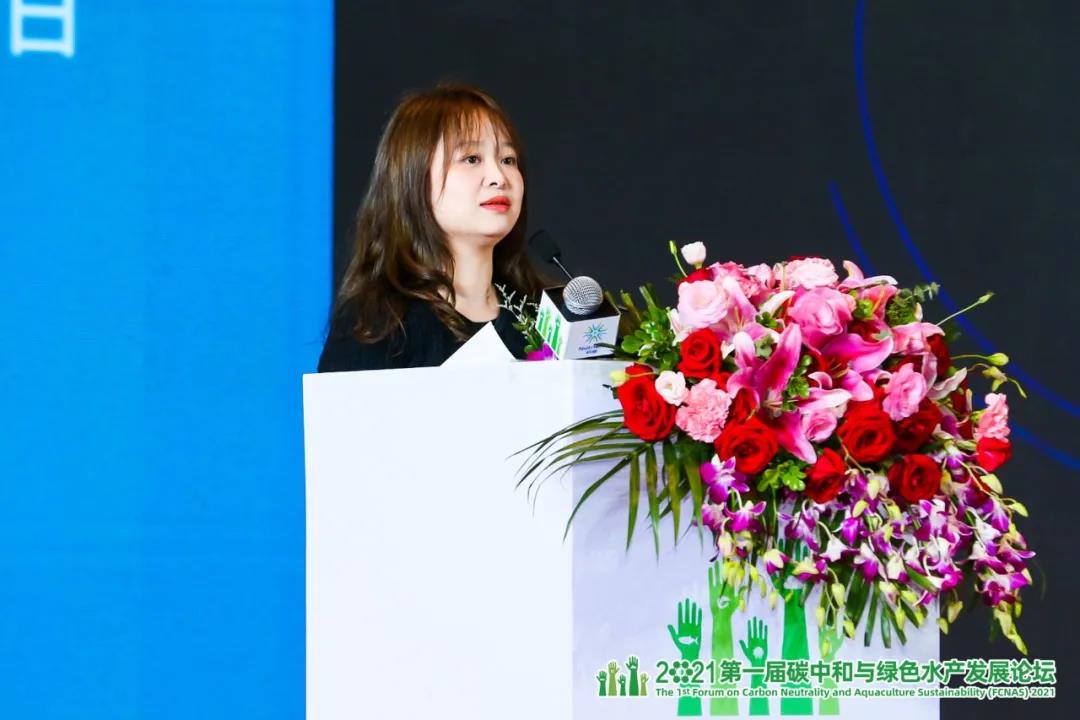
Ms. Liuying Liu, Alibaba-Hema fresh seafood and aquatic products procurement & marketing expert
4. Technology and Wisdom empowerment
Due to the dual impact of the COVID-19 epidemic and African swine fever, the consumption structure of meat and aquatic products in China has undergone profound changes. With the strong national regulation of aquatic inputs and great emphasis on the regulation of the farming environment, there will be more application scenarios for various technology-based products and solutions. Technological innovation and the ability to build service systems will also be the core competencies of aquatic companies in the future.
Dr. Ganfeng Yi, Chairman of DBN Aquatic Technology Group, pointed out that big data, artificial intelligence, internet of things, etc., coupled with the help of financial capital and technology, will help the aquatic industry to develop vigorously.

Dr. Ganfeng Yi, Chairman of DBN Aquatic Technology Group
Mr. Xuan Wang, Director of development strategy of Guangzhou XAG Co., Ltd., introduced the results achieved through the intelligent and precise operation of the smart agricultural system, which directly increased crop yields by 4.98 million tons, saving 30% of pesticides and 90% of plant protection water. The successful experience of XAG in the planting industry is an excellent reference and inspiration for the digital innovation of the aquatic industry.
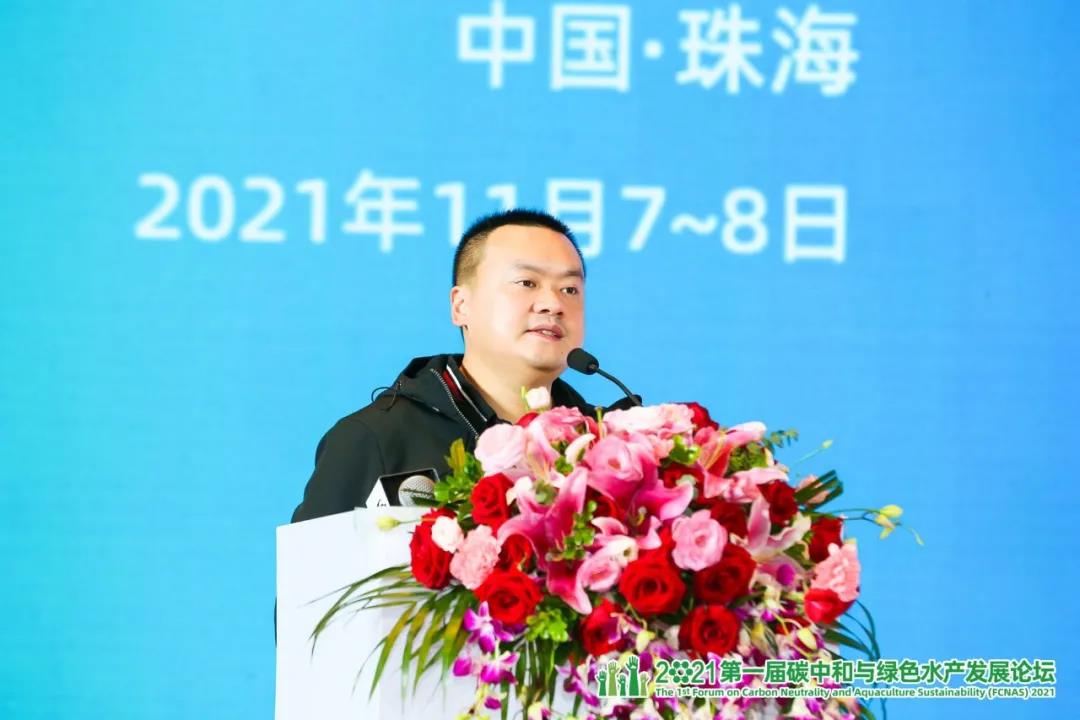
Mr. Xuan Wang, Director of development strategy of Guangzhou XAG Co., Ltd.
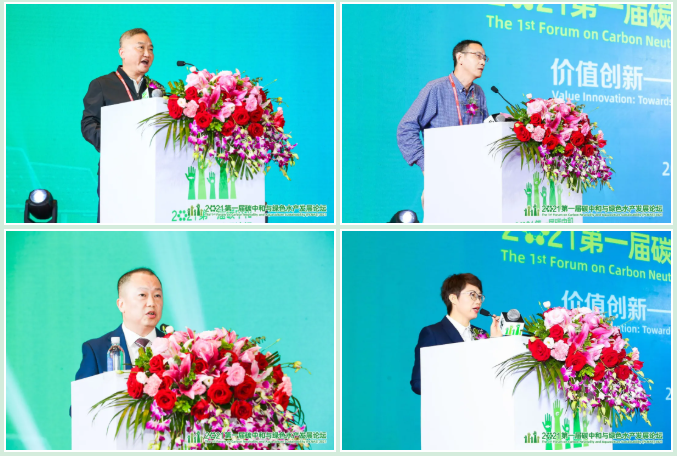
The forum was co-hosted by Mr. Jinghong Chen, deputy Director of expert Working Committee of China Fishery Association, Prof. Qiwei Qin, president of Marine College of South China Agricultural University, Dr. Song Zhang, vice president of Nutriera Group, and Ms. Fen He, Quality Management Director of Nutriera Group.
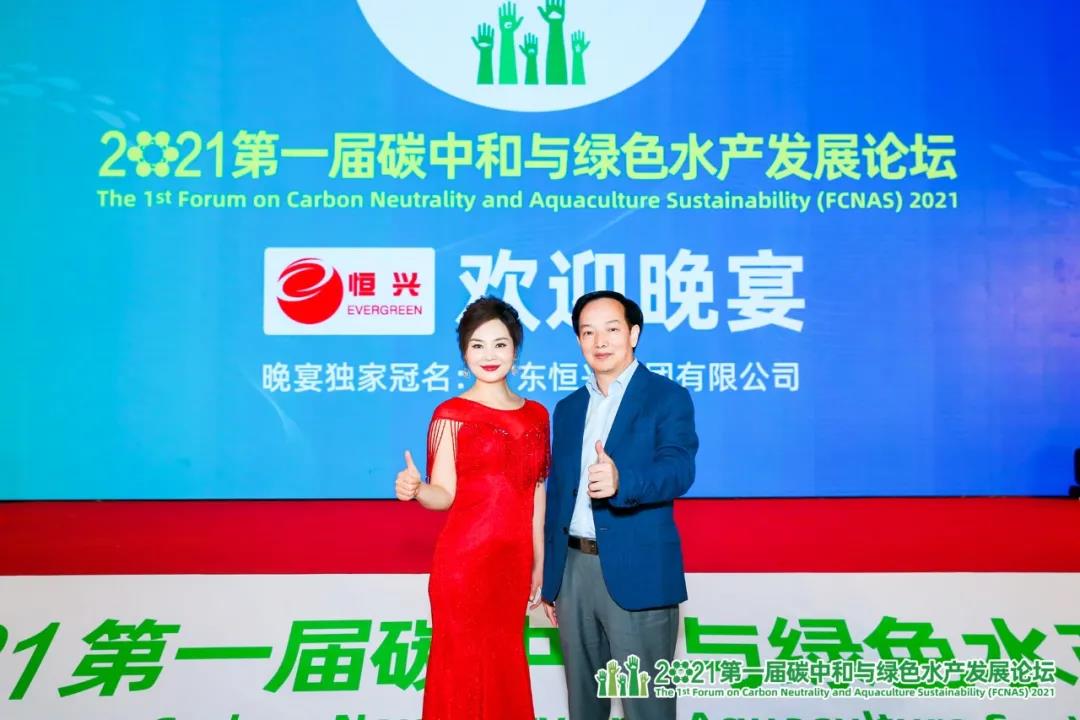
The welcome dinner was exclusively sponsored by Guangdong EverGreen Group.
Mr. Dan Chen, Chairman of EverGreen (right), and Prof. Huirong Yang, vice President of the College of Oceanology of South China Agricultural University (left).
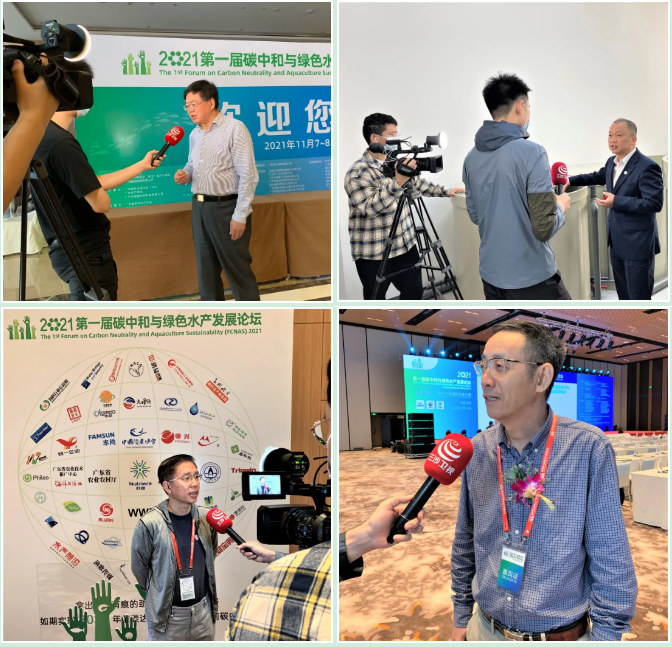
Sansha Satellite TV were interviewing

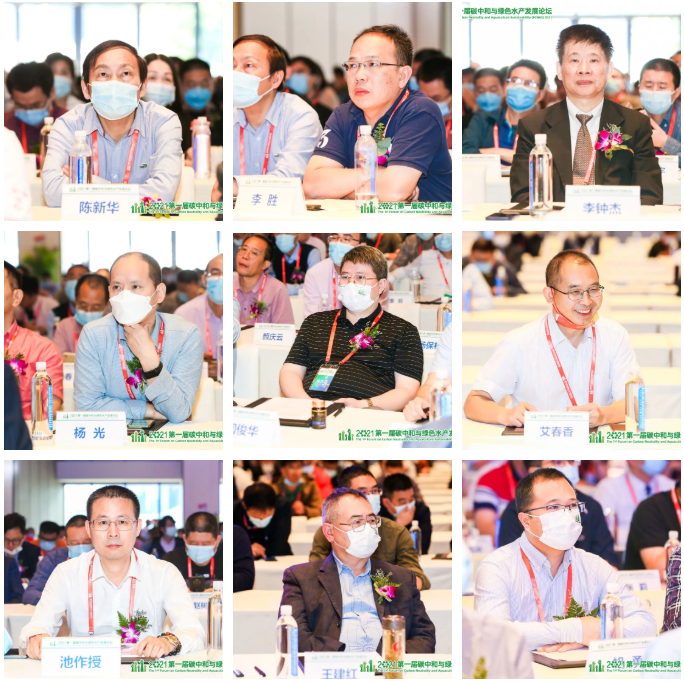
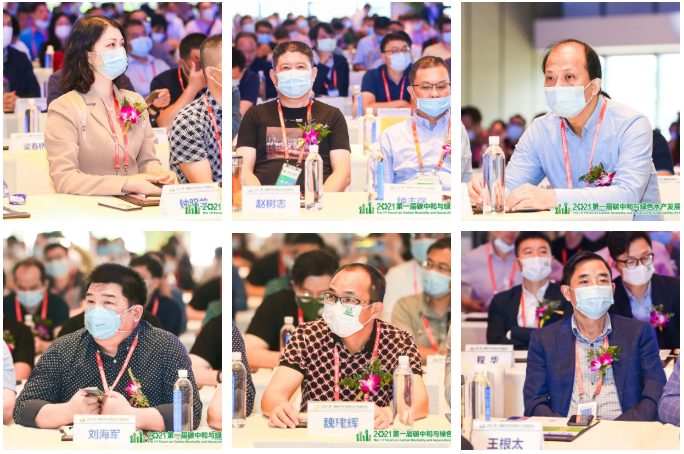
On the first day after the forum, the guests were invited to visit Nutriera Zhuhai Industrial Park and the pilot base near the Hong Kong-Zhuhai-Macao Bridge. The visitors were impressed by the world-class premix production workshop, R&D center and pilot base of Nutriera Group.

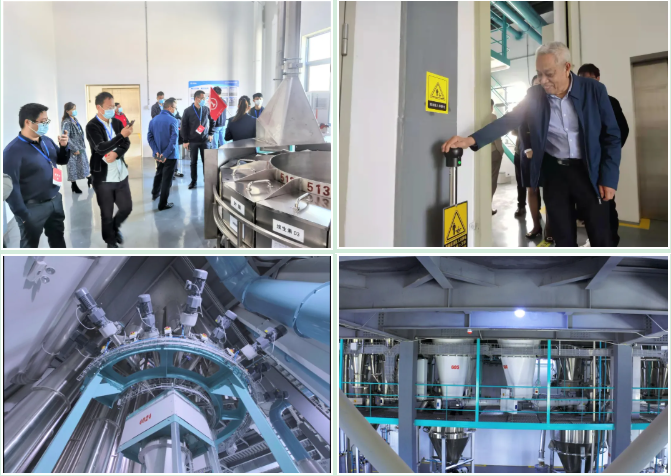
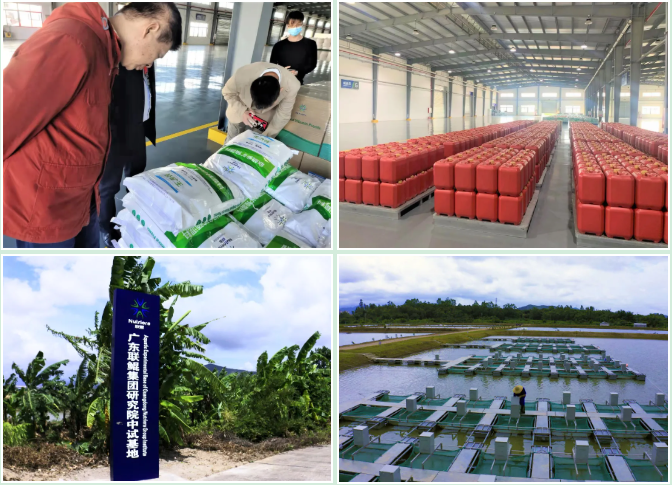
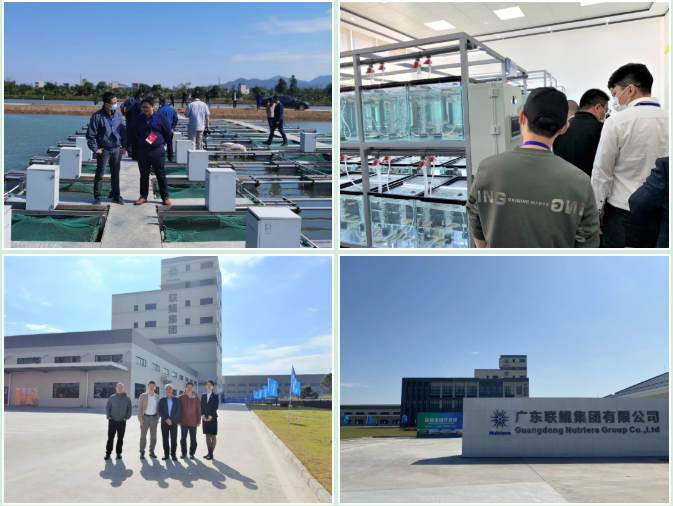
About Nutriera Group
As the leading enterprise in aquatic premix industry, Nutriera Group has been adhering to the mission of leading the sustainable aquaculture development, contributing to the food nutrition and safety since its establishment. It actively guides the healthy development of aquaculture industry, from product transformation and upgrading, value chain extension, to the innovation concept of nutrition farm-care. Under the background of the national dual-carbon strategy, Nutriera Group will continue to play its role and actively explore the sustainable development of the innovative aquatic industry.

The organization of the 1st Forum on Carbon Neutrality and Aquaculture Sustainability (FCNAS) 2021 is an action of Nutriera’s active integration into the national development strategy and joining hands with industry peers to meet new opportunities and new challenges. The successful completion of the forum outlines a grand blueprint for the healthy development of aquatic products in the context of carbon neutrality, inspiring the confidence of the industry peers in vigorously expanding aquatic products, and creating new development opportunities for the aquatic products industry.
In the future, Nutriera Group will continue to actively explore, contribute to industrial value innovation, and make the greatest contribution to the early realization of the national double carbon policy together with industry counterparts.
